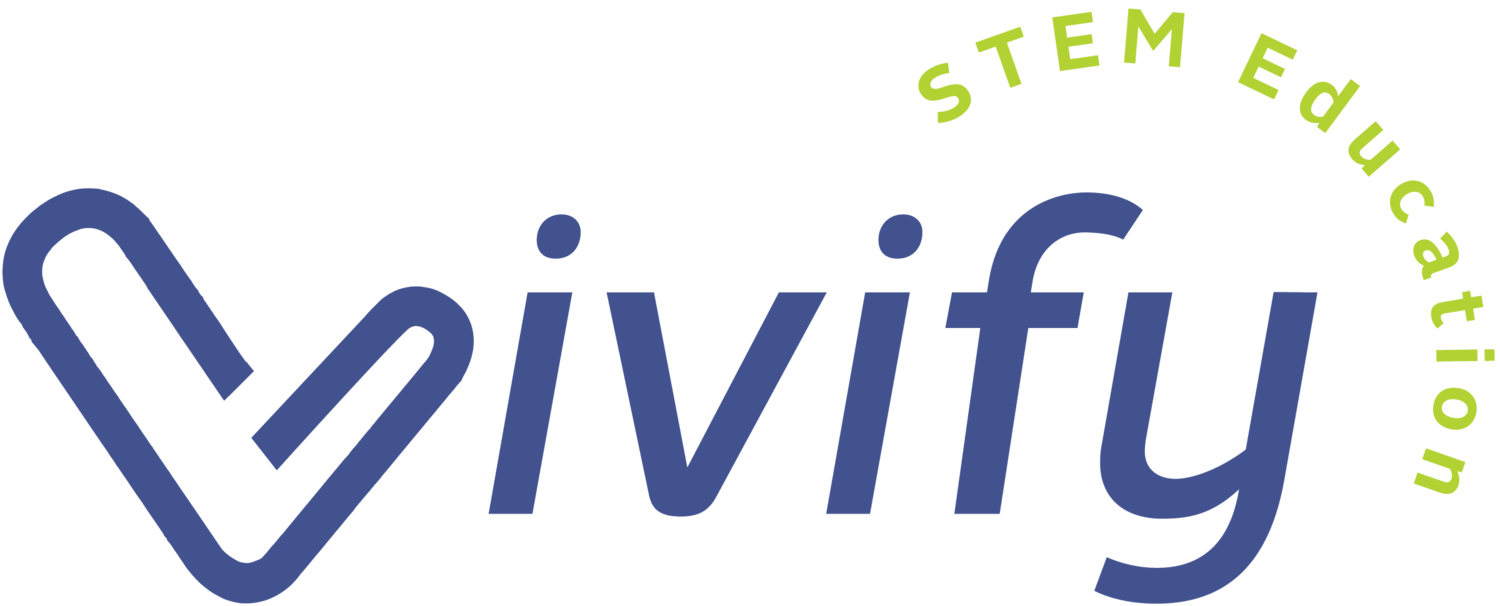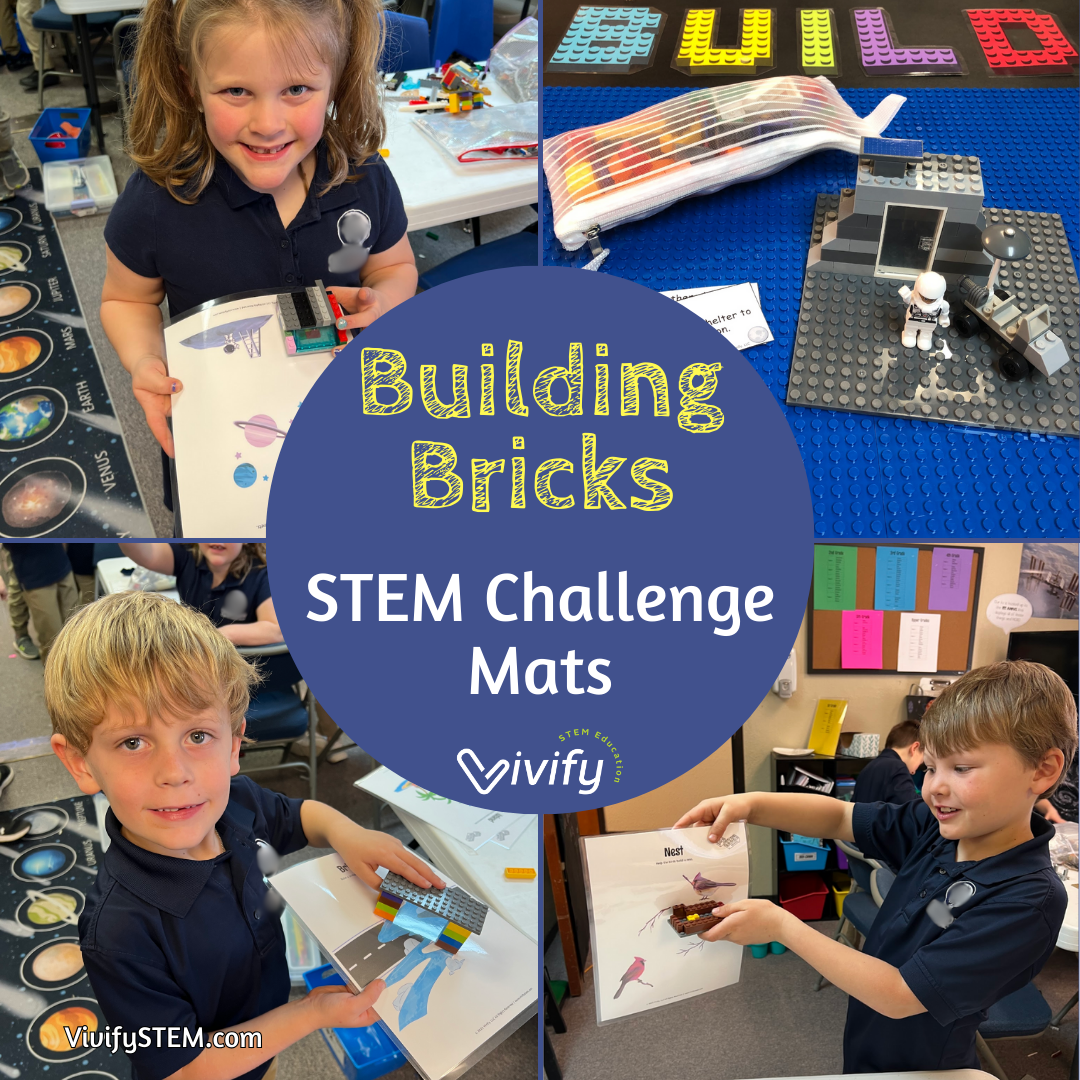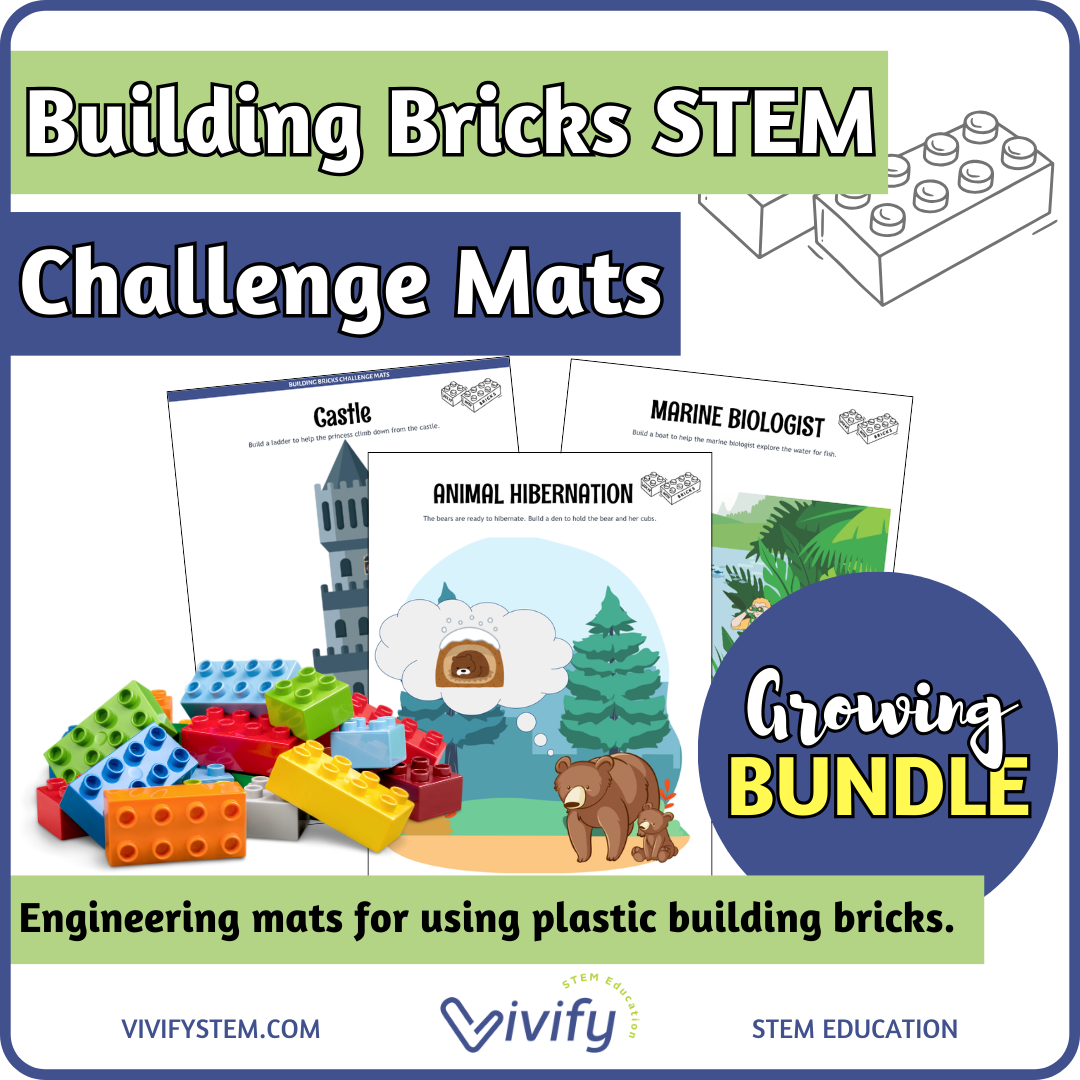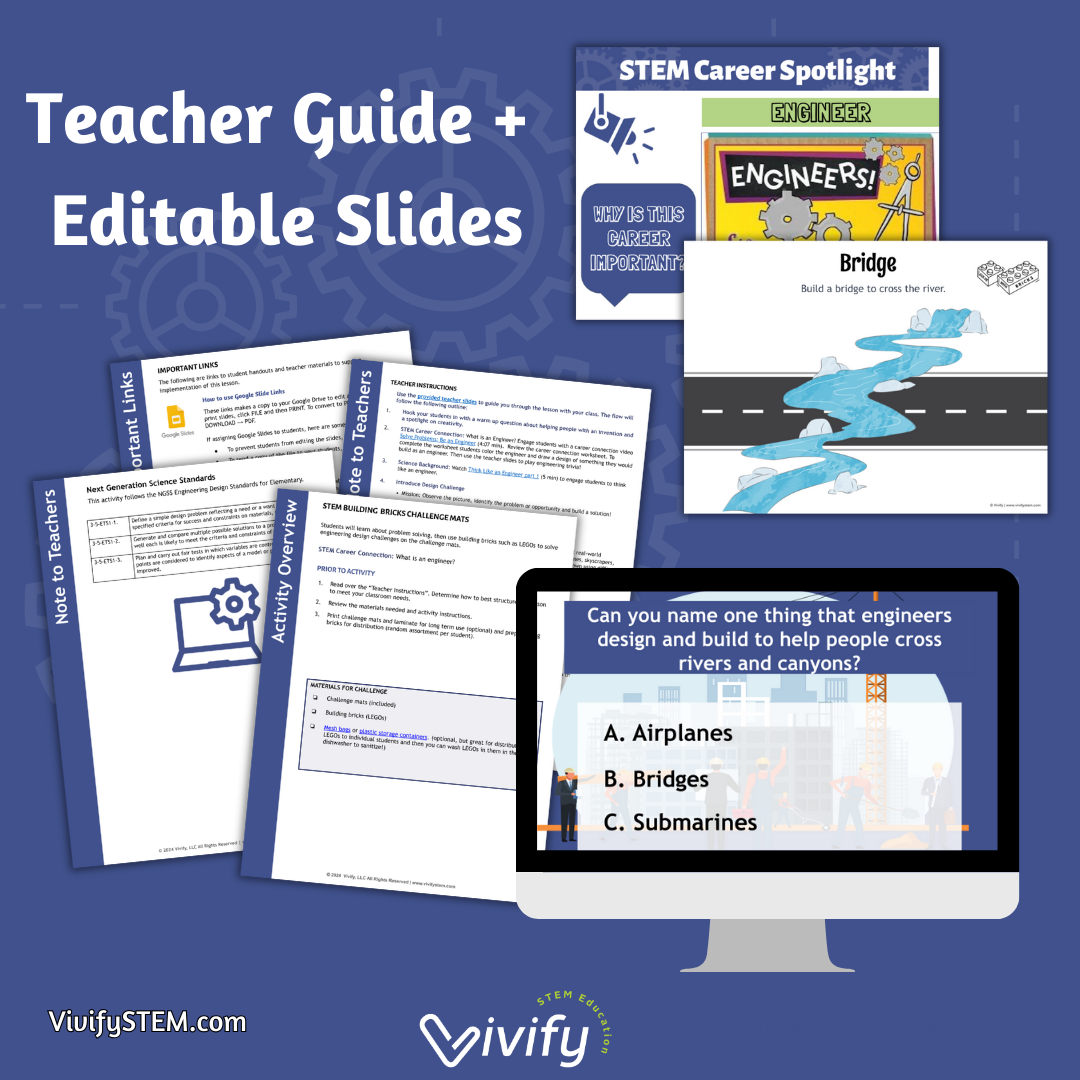Building Bricks STEM Challenge: Engage Young Minds Through Hands-On Learning
Post by Kristina Klammer, Natasha Wilkerson, and Claire Meschkat
Posted: November 19, 2024
Do you have a bunch of building bricks or LEGO® blocks in your classroom? Looking for low-prep STEM stations for younger students? Check out our free Building Bricks Challenge Mats, a perfect way to introduce K-5 students to STEM! Find them in our free resource library, and read below for all the details!
Overview of the Challenge Mats
The building brick challenge mats are designed to guide students through a variety of challenges that blend creativity with engineering principles. Each mat uses the letters of the alphabet to inspire students to create objects, structures, or designs that correlate with each letter, making it easy to integrate language arts with STEM learning. These are very similar to our building brick task cards but provide a visual backdrop and context that works well with beginner readers.
Our free challenge mat includes the following:
A = Ants: Build a wall to protect your picnic from ants.
B = Bridge: Build a bridge to cross the river.
C = Castle: Build a ladder to help the princess climb down from the castle.
Materials Needed:
To get started with the Building Bricks Challenge Mat, you’ll need the following materials:
A set of building bricks (LEGO® bricks or any similar type).
The Building Bricks Challenge Mats, available for purchase or available for download with a membership to The STEM Space
Mesh bags or plastic storage containers. (optional, but great for distributing LEGO® bricks to individual students and then you can wash them in the dishwasher to sanitize!)
Optional: timers (for timed challenges), graph paper (for planning), and measuring tools (for height and length measurements).
How to use the Challenge Mats:
Pass out a mat to each student.
Ask students to identify the problem or opportunity based on what they see in the picture.
Have them build something to solve the problem or seize the opportunity.
Provide a new mat when each student finishes. They may also trade mats.
Want more tasks for the rest of the Alphabet? Check out our full Building Brick Challenge Mats: Through the ABCs or grab the growing bundle below!
Why Building Bricks Matter in STEM
Building bricks are more than just toys; they are a gateway to hands-on learning that encourages problem-solving, spatial awareness, and design thinking. Through activities that use these familiar materials, students can explore engineering and math concepts in a way that feels like play. By engaging with the Building Bricks Challenge Mats, students develop foundational skills in logic, geometry, and pattern recognition, which are crucial for future STEM success.
At an early age, developing these skills can boost a child’s confidence in their abilities to think like an engineer, turning challenges into opportunities for exploration. Plus, when students work on these challenges together, they enhance their teamwork and communication skills, preparing them for more advanced STEM projects in later grades.
Key Learning Objectives:
Introduce the engineering design process in a hands-on way.
Enhance spatial awareness, pattern recognition, and logical thinking.
Encourage creativity and open-ended problem-solving.
Promote collaboration and teamwork among students.
Standards Alignment: The Building Bricks Challenge Mat aligns with multiple standards for K-5 education such as:
Next Generation Science Standards (NGSS): 3-5 ETS1-1, 3-5 ETS1-2, 3-5 ETS1-3
Common Core State Standards (CCSS): Math standards focusing on geometry, measurement, and problem-solving:
Kindergarten: K.G.B.6: Compose simple shapes to form larger shapes (e.g., "Can you join these two triangles with full sides touching to make a rectangle?").
Grade 1: 1.G.A.1: Distinguish between defining attributes (e.g., triangles are closed and three-sided) versus non-defining attributes (e.g., color, orientation, size); build and draw shapes to possess defining attributes.
International Society for Technology in Education (ISTE): Standards for creativity, innovation, and computational thinking:
ISTE Standard 1: Connection: Students use building bricks to set goals for their designs, develop strategies to solve building challenges, and reflect on what worked or didn’t in their approach.
ISTE Standard 5: Computational Thinker: Connection: Students might collect data on their building designs, such as stability or the number of bricks used, and analyze which strategies were most effective
Classroom Instructions
Building Brick challenges typically require at least one 45-minute class period. Within this time frame, educators can complete the lesson along with at least one Building Bricks challenge mat. Educators with longer class periods can allow students to complete more than one challenge mat. With 26 different options available, teachers could extend this lesson into a daily warm-up exercise!
Sample 45-Minute Session Breakdown:
Engage (15 minutes)
Introduce students to the question, "What is an Engineer?" and engage them with a career connection video: Solve Problems: Be an Engineer (4:07 min). Use the career connection worksheet, where students color the engineer and draw a design of something they would build. Reinforce this idea with an engaging game of engineering trivia using the teacher's slides. Watch Think Like an Engineer Part 1 (5 min) to encourage students to start thinking like real-world engineers.
Activity (20 minutes)
Give activity instructions: Have students observe a picture, identify a problem or opportunity, and build a solution using the materials provided. Introduce the simplified Engineering Design Process, explaining that engineers use these steps to create everything from rockets to computers. Depending on your preference, students can complete the build on their own using different mats or work together on the same mat as a class activity. If students work individually, print and laminate the challenge mats for each student. Otherwise, project the mats using the teacher slides for the whole class.Encourage students to modify their designs as they work through the challenge, keeping them actively engaged and collaborating if they are in pairs or small groups.
Reflection (10 minutes)
Have students share their designs with the class, explaining how their solution works. Prompt students with additional reflection questions. If time allows, collect and redistribute the challenge mats for another round of building to see how students approach a new problem.
Whole Class Approach:
Select one challenge mat for the entire class.
Use the teacher slides to display the chosen mat or distribute it to each student.
Have students build based on the challenge mat.
Conclude by reflecting and sharing designs as a class.
Individual Approach:
Distribute different challenge mats to each student.
Students work on their assigned mats.
Rotate challenge mats among students if time permits, allowing them to experience multiple challenges.
Additional Resources
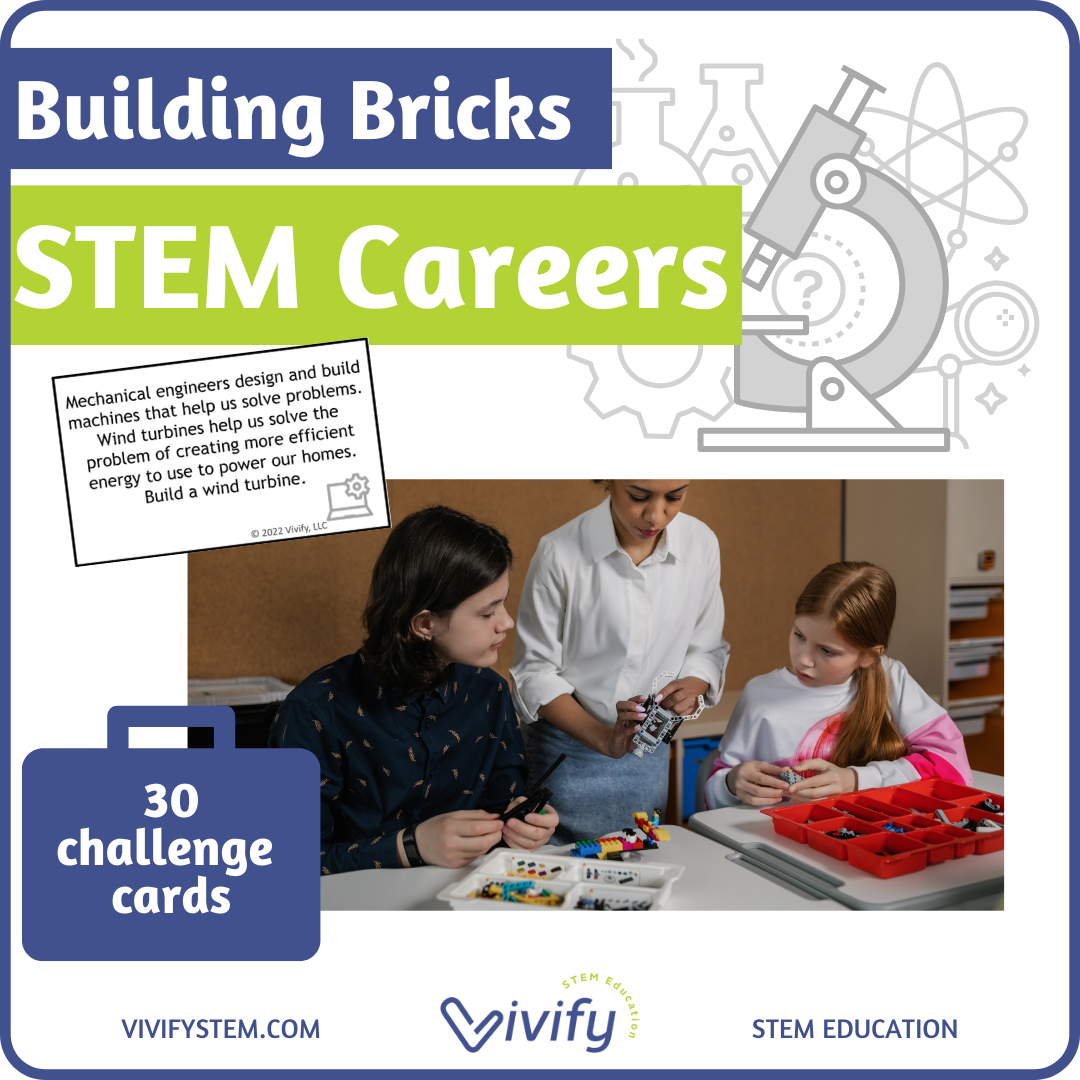
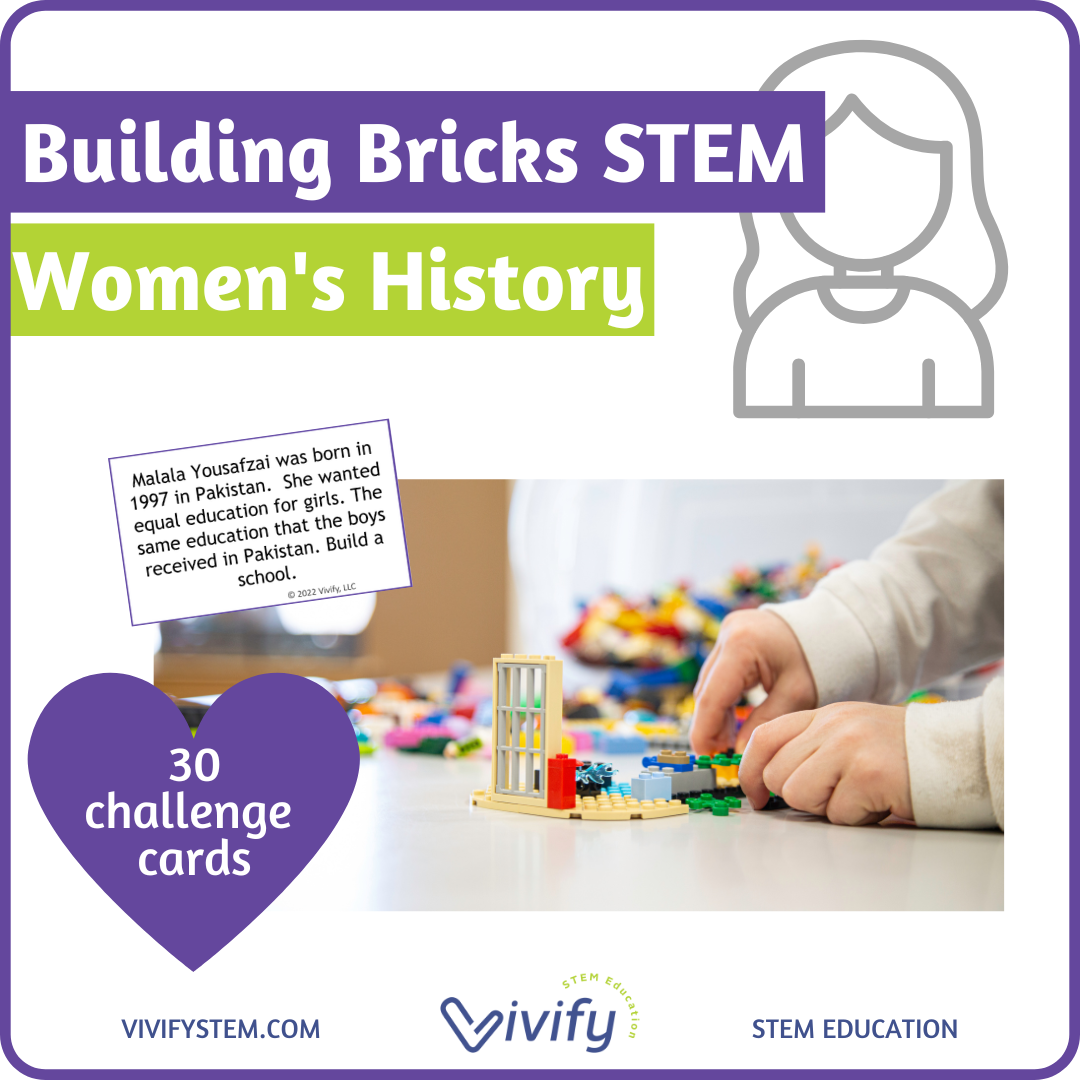
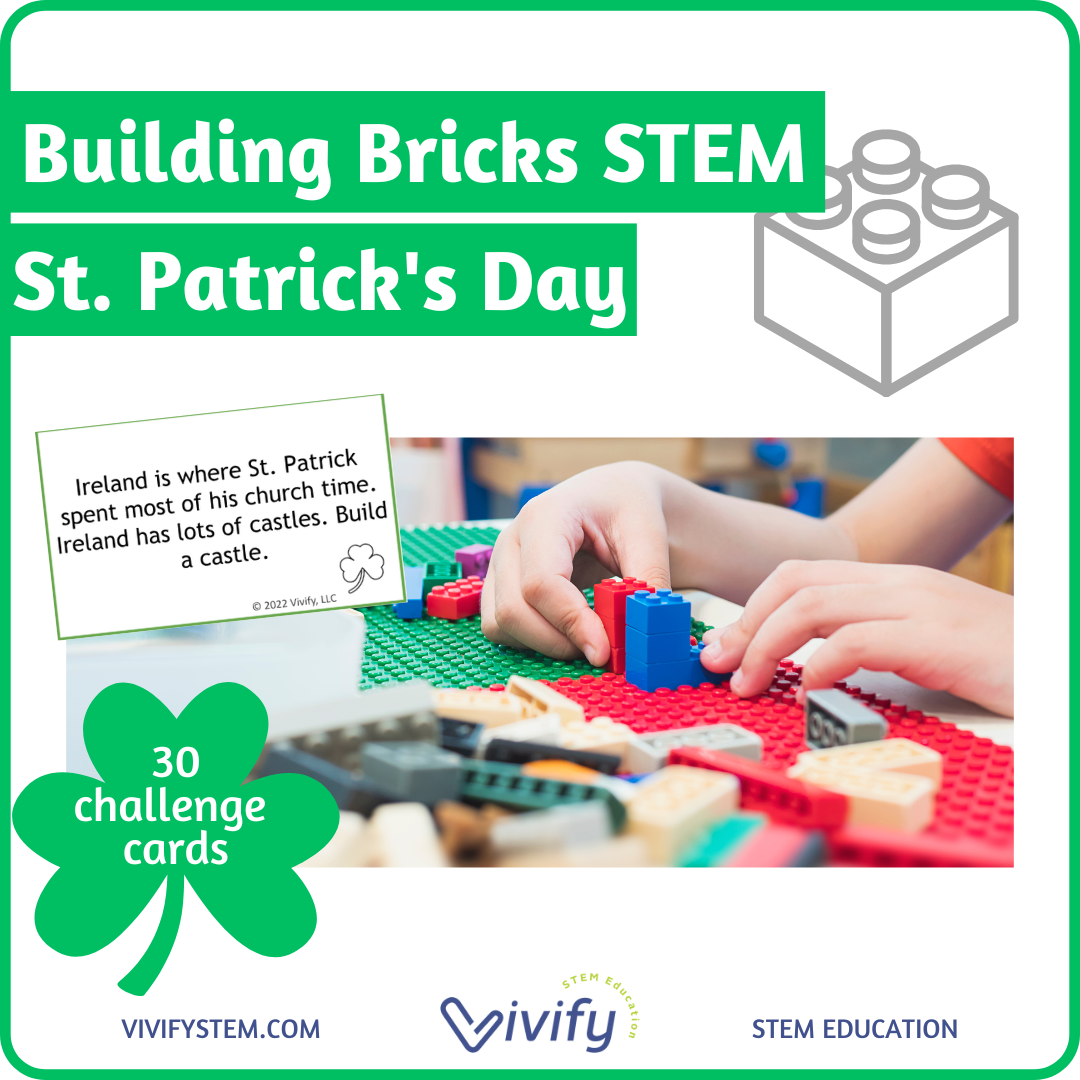
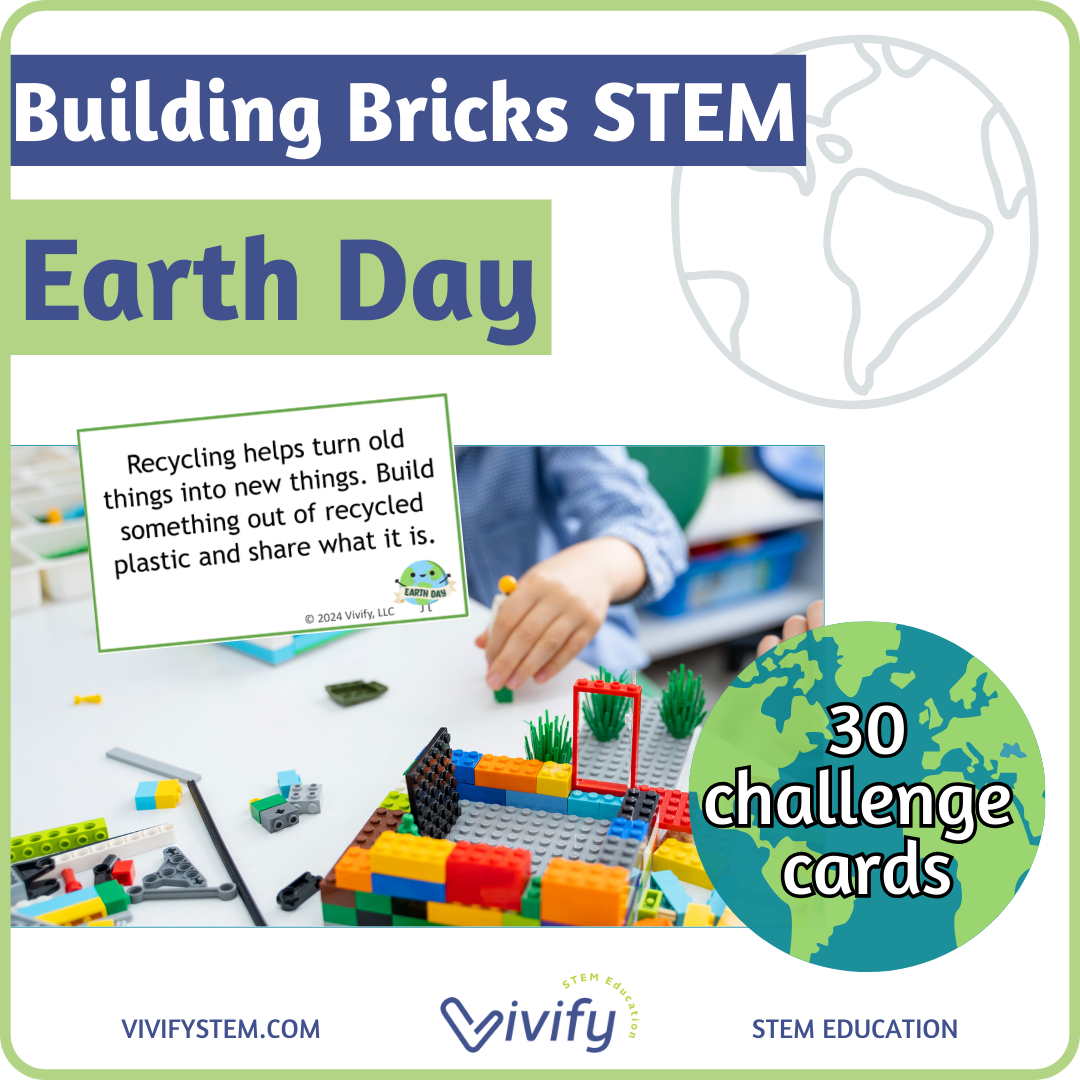
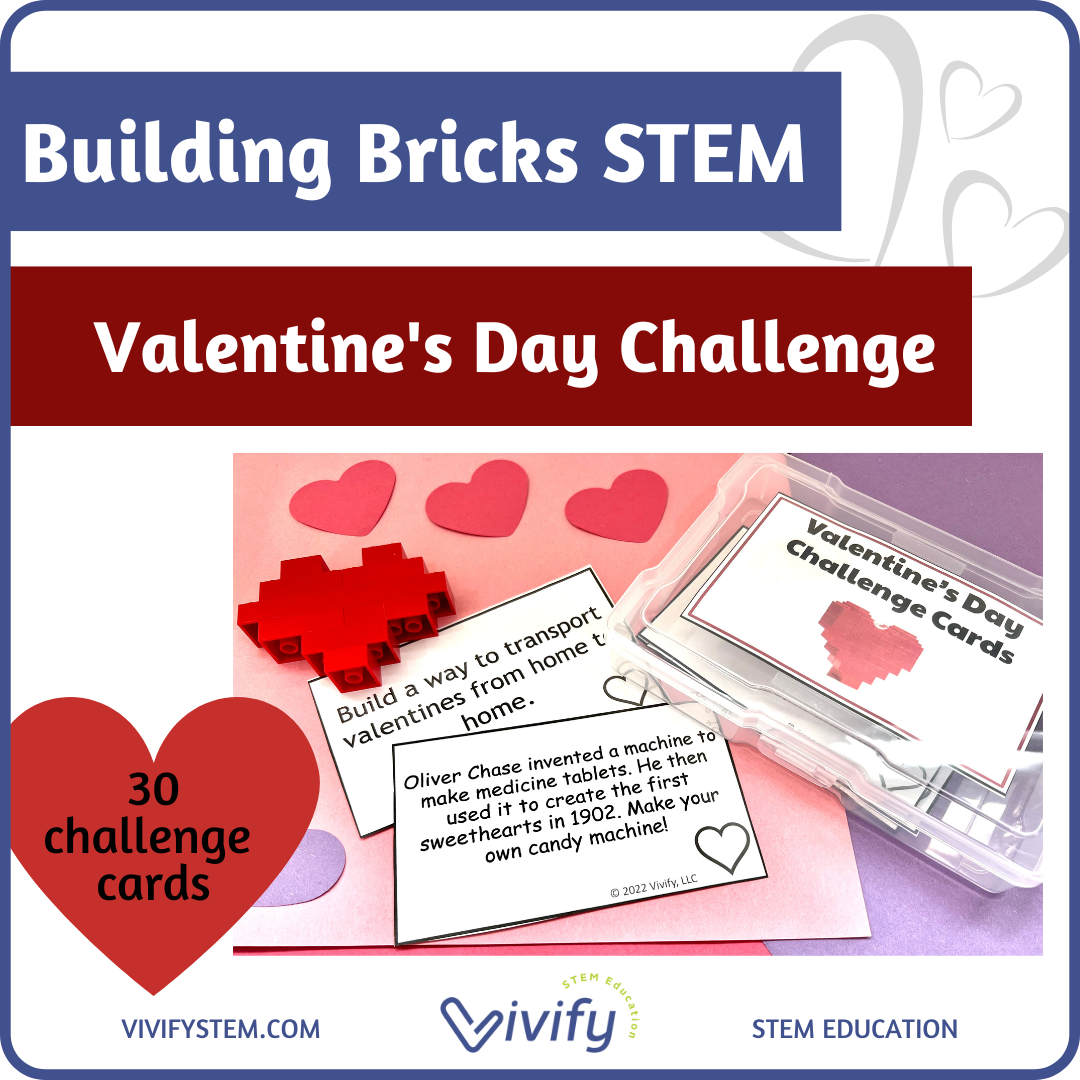
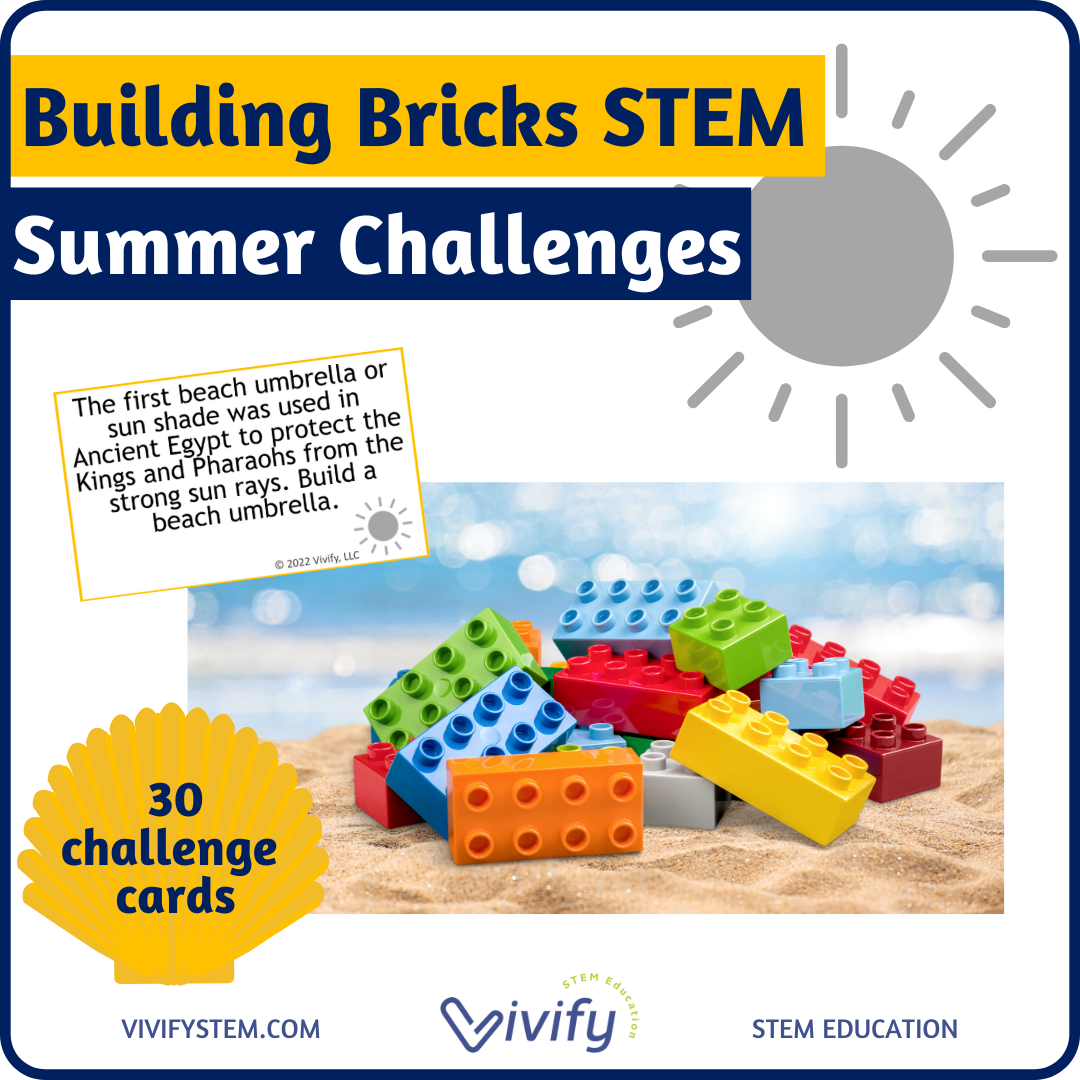
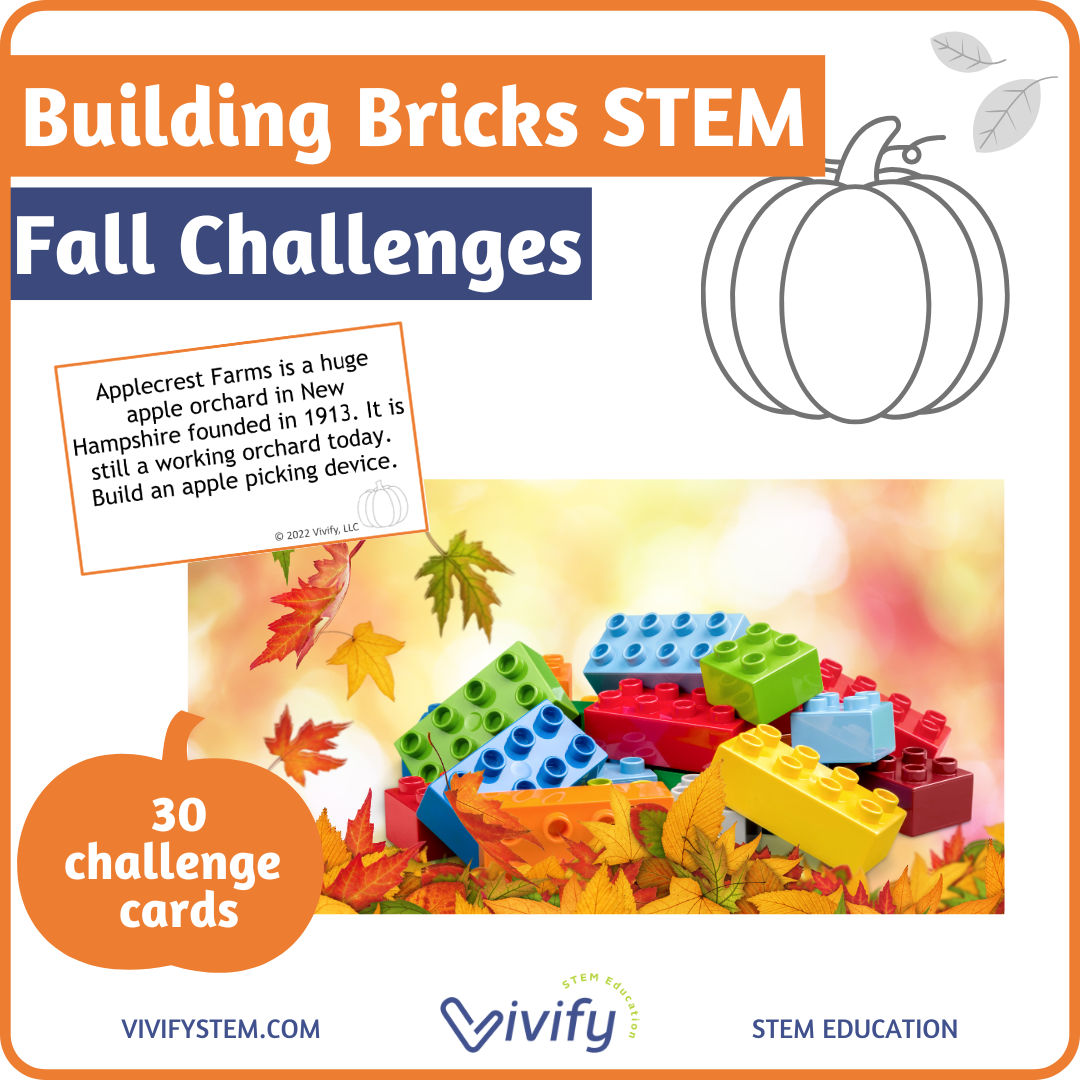
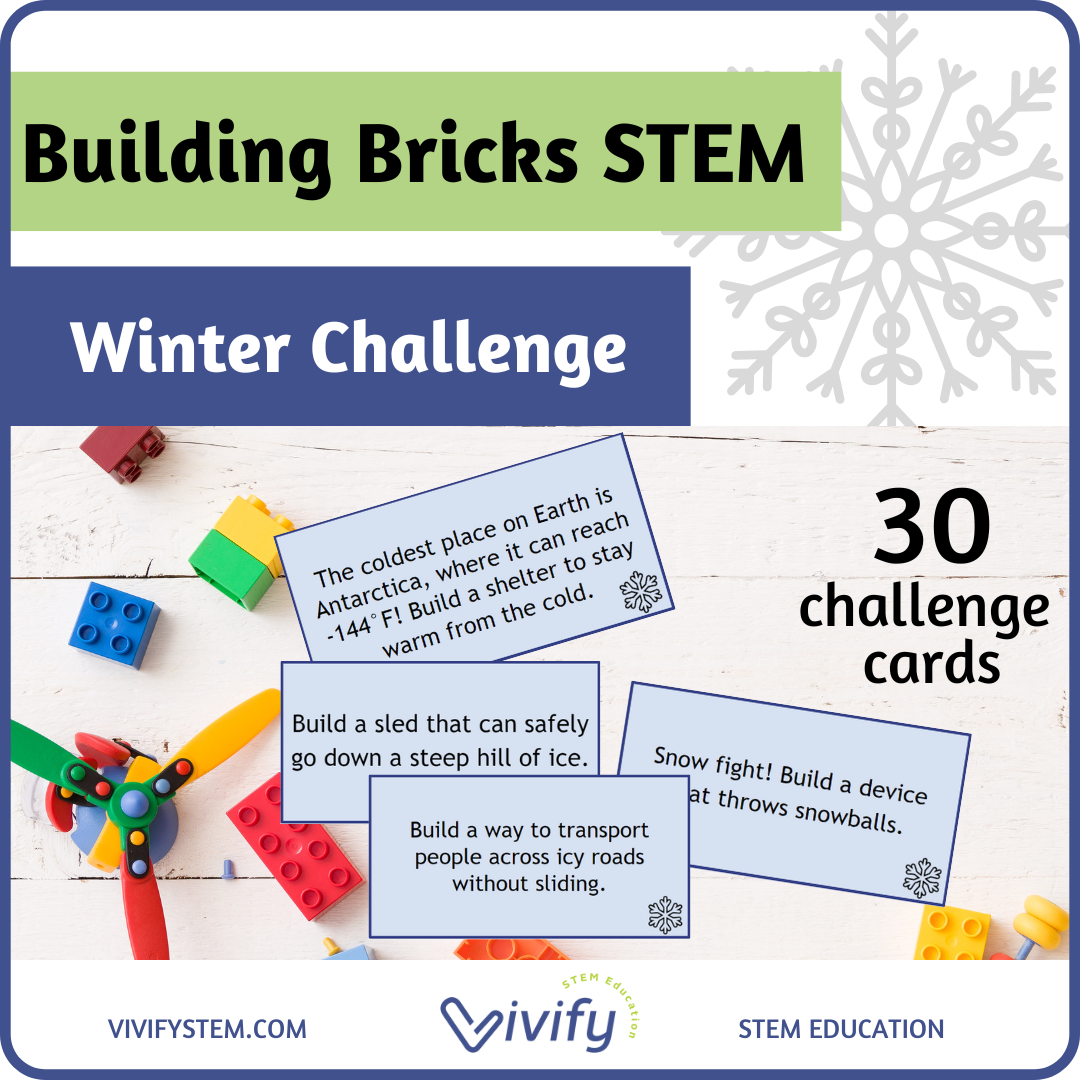
Want more activities to use with Building Bricks? Check out our building brick task cards that cover different seasons or topics:
Seasonal Task Cards: St. Patrick's Day, Earth Day, Valentine's Day, Summer, Fall, or Winter
You can also save 20% off by grabbing the year-round bundle of task cards!
More ways to extend the learning:
Video tutorials on the basics of the engineering design process:
Watch this Think Like an Engineer video to engage students.
Engage students with a career connection video about engineers.
Extend the fun with some more activities related to STEM careers here or try out our STEM Careers BINGO game.
Interactive apps or software (such as BlockCAD) that allow students to design brick models digitally.
Want to implement this activity in your classroom or program? Check out our full teacher and student STEM guide here. This includes editable student handouts for each letter of the alphabet, teacher guide and editable teacher slides!
